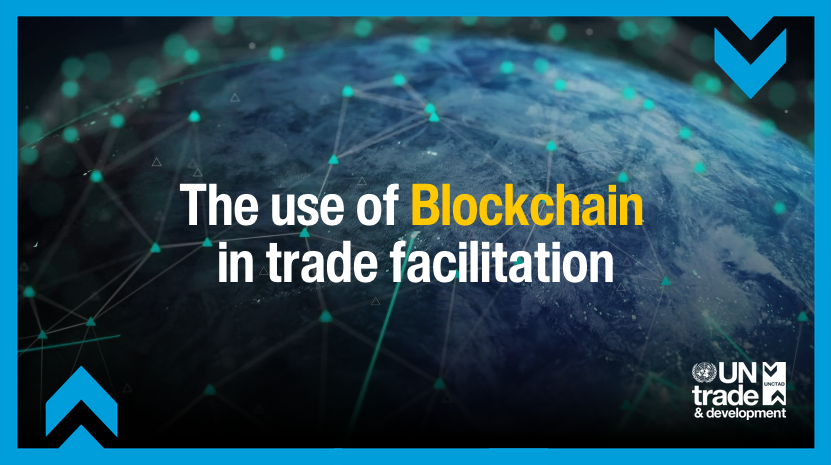E-learning course on the use of Blockchain in Trade Facilitation
E-commerce has transformed global trade, granting trade facilitation a crucial role in ensuring that essential goods and services reach the targeted destination in an affordable and timely manner. Digitalization and automation currently offer efficiency gains in global value chains.
However, with these great innovations, dangers have also surfaced such as cyber intrusions and illegal hacks. In our highly technological and globalized world, Blockchain can ensure efficiency in trade and offer security against these challenges. Nevertheless, the reality today is that countries are lagging behind when it comes to the implementation of Blockchain in the field of trade facilitation.
This course has been designed to raise awareness on the opportunities and challenges that can emerge when using blockchain technology in trade facilitation. It will allow decision-makers and practitioners to understand the benefits of applying such a technology. as well as the pre-requisites and the environment that must be attained prior to ensuring the technology’s success.
This course is the result of an effort across several UN agencies. UNCTAD has developed it with support from the UN regional commissions for Africa (ECA), Europe (ECE), Latin America and the Caribbean (ECLAC), Asia and the Pacific (ESCAP) and Western Asia (ESCWA).
Course format
This course, offered in English, and combines a series of self-paced activities with several webinars with experts.
The total course duration is approximately 8 hours.
Course Content
In the first module, you will understand what blockchain is, why it is important, and explore examples of its use in international trade. The second module will guide you in assessing a country's readiness to implement a blockchain-based trading ecosystem.
Thanks to its content, quizzes to reinforce key concepts, and two online seminars with international experts, this course will not only expand your knowledge but will also allow you to meet other trade facilitation experts interested in blockchain.
A completion certificate will be granted to participants who complete the e-learning assignments accompanying this course.
• February 11: Opening Ceremony (13:00-15:00 CET)
• February 12 – March 3: Self-paced learning period
• March 4: Closing Ceremony (13:00-15:00 CET)

